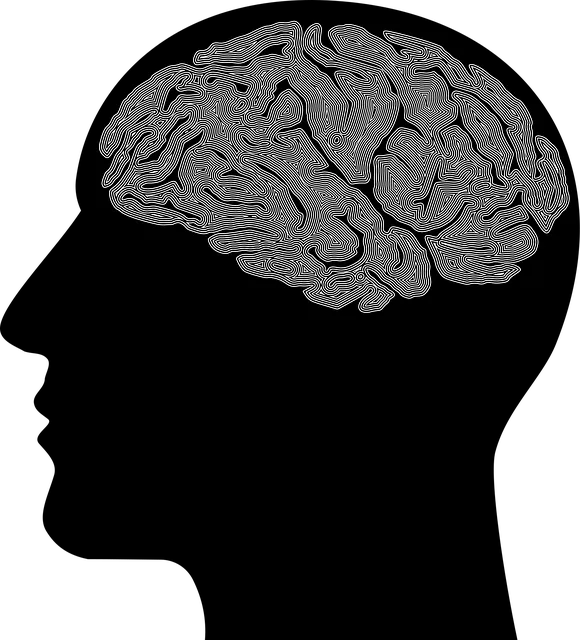Kaiser Permanente's mental health center in Broomfield offers a unique group facilitation program for emotional well-being, highlighted in popular podcasts and praised in reviews. This approach creates a safe space through interactive activities and structured discussions, encouraging personal growth and community building. Using evidence-based practices, compassion cultivation, and active listening, the center fosters resilience and effective coping skills while prioritizing confidentiality and participant engagement. Regular check-ins, feedback adaptation, and empathy-building strategies ensure transformative sessions, contributing to improved mental wellness as indicated in strong Kaiser Permanente mental health center reviews Broomfield. Success is measured through subjective growth reports and objective symptom reduction metrics, with continuous improvement guided by burnout prevention and risk assessment strategies.
Mental wellness group facilitation plays a pivotal role in fostering community and healing. This article explores the art of guiding groups at Kaiser Permanente Broomfield, renowned for its exceptional mental health services (Kaiser Permanente mental health center reviews Broomfield). We delve into techniques to create safe spaces, engage participants actively, and measure success, ensuring effective support and positive outcomes for those navigating mental wellness journeys.
- Understanding the Role of Group Facilitation in Mental Wellness
- Kaiser Permanente Broomfield: A Center for Excellence in Mental Health
- Building a Supportive Environment: Key Techniques for Group Sessions
- Engaging Participants and Promoting Active Engagement
- Measuring Success: Evaluating the Impact of Group Facilitation Techniques
Understanding the Role of Group Facilitation in Mental Wellness

In the context of mental wellness, group facilitation plays a pivotal role in fostering a supportive and therapeutic environment. At Kaiser Permanente mental health centers in Broomfield, facilitators act as guides, enabling individuals to navigate their emotional journeys together. This collaborative approach is particularly effective for building resilience, as participants learn from one another’s experiences, enhancing coping skills development.
The art of group facilitation goes beyond mere conversation; it involves creating a safe space where every voice is heard and respected. Through interactive activities and structured discussions, facilitators encourage active participation, ensuring each member contributes to the collective healing process. This technique, often seen in popular Mental Wellness Podcast Series Production, has proven to be a powerful tool for personal growth, as it allows individuals to share their stories, gain new perspectives, and build a sense of community—all essential aspects for maintaining optimal mental wellness.
Kaiser Permanente Broomfield: A Center for Excellence in Mental Health

Kaiser Permanente Broomfield stands as a beacon of hope and healing in the realm of mental wellness. Recognized as a Center for Excellence in Mental Health, this facility offers a multitude of services designed to cater to diverse needs. From individual therapy sessions to group facilitation techniques, it provides a supportive environment where folks can find solace and guidance. The center’s commitment to evidence-based practices, coupled with its dedicated team of professionals, ensures that those seeking help receive the highest quality care.
In today’s demanding healthcare landscape, burnout prevention strategies for healthcare providers are paramount. Kaiser Permanente Broomfield understands this challenge and incorporates mental wellness journaling exercises into their approach, fostering self-awareness and resilience. By addressing depression prevention proactively, the center not only aids individuals in overcoming immediate struggles but also equips them with lifelong coping mechanisms. The positive reviews from those who have benefited from these services attest to the center’s excellence and dedication to transforming lives.
Building a Supportive Environment: Key Techniques for Group Sessions

Creating a safe and supportive environment is paramount when facilitating group sessions at a Kaiser Permanente mental health center in Broomfield. Techniques like active listening and open-ended questions encourage participants to share their experiences and feelings, fostering trust and camaraderie. By cultivating empathy and understanding, facilitators can help members feel seen and validated, reducing barriers to open communication.
Compassion cultivation practices, such as mindful speaking and non-judgmental presence, are essential tools for building a nurturing atmosphere. Incorporating mindfulness meditation into group activities not only enhances focus but also promotes emotional regulation. Effective risk management planning for mental health professionals ensures that these sessions remain beneficial while maintaining safety and confidentiality, making them a valuable asset in the Broomfield community.
Engaging Participants and Promoting Active Engagement

Engaging participants and fostering active engagement are crucial components of effective group facilitation at the Kaiser Permanente mental health center in Broomfield. To capture and maintain their interest, facilitators should incorporate interactive activities that encourage open dialogue and shared experiences. For instance, starting with icebreakers or using experiential exercises related to the topic can help create a safe and supportive environment where individuals feel comfortable expressing their thoughts and emotions.
Promoting active engagement goes beyond initial participation. Facilitators should regularly check in with group members, ensure equal opportunities for contribution, and adapt activities based on feedback. By implementing these strategies, such as those highlighted in the Mental Wellness Podcast Series Production, facilitators not only enhance overall group dynamics but also support emotional healing processes through empathy-building strategies. This approach ensures that each member feels valued and supported throughout the session, ultimately contributing to a more meaningful and transformative experience.
Measuring Success: Evaluating the Impact of Group Facilitation Techniques

Measuring success in mental wellness group facilitation is akin to unraveling a complex tapestry; each thread represents a facet of improved well-being. At the Kaiser Permanente mental health center reviews Broomfield, we’ve found that evaluating the impact of our techniques involves a multi-faceted approach. This includes subjective reports from participants on their personal growth and coping mechanisms, as well as objective metrics like reduction in anxiety and depression symptoms, and increased social connectedness.
Beyond these, integrating Burnout Prevention Strategies for Healthcare Providers into our facilitation methods has proven beneficial. By fostering Empathy Building Strategies within the group dynamic, we’ve witnessed enhanced peer support and a more supportive environment. Regular Risk Assessment for Mental Health Professionals guides us in tailoring interventions to address emerging issues, ensuring continuous improvement and adaptability in our facilitation techniques.
Group facilitation plays a pivotal role in enhancing mental wellness, as evidenced by the successful programs at Kaiser Permanente Broomfield, a renowned mental health center. By employing techniques that foster supportive environments and active participant engagement, facilitators can create safe spaces for healing and growth. The impact of these strategies is measurable, allowing for continuous improvement and ensuring that services meet the unique needs of individuals seeking support. For those interested in mental wellness, exploring group facilitation techniques offers a promising path towards holistic care, as highlighted by the positive outcomes seen at this leading mental health center in Broomfield.






